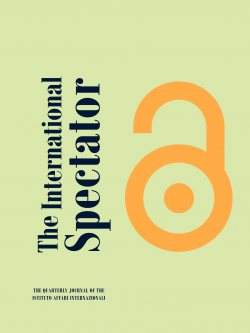Performing the (Contested) State: A Critical Discourse Analysis of Transnistria’s Political Elites

Existing literature insufficiently ascribes agency to contested states: most studies have predominantly focused on the binary distinction of ‘recognised’ vs ‘unrecognised’ and, in most cases, have treated them as static entities, failing to explain how statehood is (re)constructed by different discourses and political performances. By adopting a performative understanding of the processes of state-building, we argue instead that political performances lie at the foundation of the ‘state’, shaping and legitimising its institutional apparatus and power structures. This is even more crucial for contested states, which rely on such performances in their struggle for recognition. The performance of national history and its instrumentalisation, culture and democratic values, material provision and political and diplomatic processes all contribute to constructing the reality of statehood through the consistent repetition of political discourses. This investigation of the case of Transnistria, employing Critical Discourse Analysis (CDA) to analyse the language and performances of its political elites, sheds light on the dynamic and transitional nature of its contested statehood.
Keywords: contested states; Transnistria; performativity; language; discourse; local dynamics
-
Dati bibliografici
The International Spectator, Vol. 60, No. 2, June 2025, p. 93-113 -
Numero
60/2 -
ISBN/ISSN/DOI:
10.1080/03932729.2025.2472956



